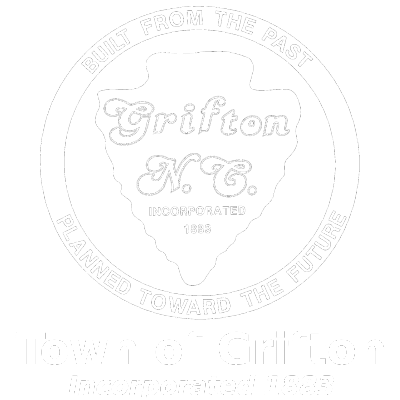
Town of Grifton Tackles Issues, Turning Adversity into Success Local Government Commission Removes Town from Unit Assistance List
The town of Grifton has been recognized by the Local Government Commission for significant improvements that led to a financial turnaround and removal from a state list of government entities battling financial and governance challenges.
The Pitt County town of 2,702 residents was flagged for high-risk concern over internal bookkeeping controls and, to lesser degrees, financial issues related to its general fund and water and sewer fund a news release said.
The situation landed the town on the LGC’s Unit Assistance List for at-risk local governments.
“Grifton officials demonstrated a willingness to find out what’s right, get it right and keep it right, and through dedicated effort, were able to move off the UAL quickly,” said State Treasurer Dale R. Folwell, who chairs the LGC. The commission is staffed by the Department of State Treasurer’s State and Local Government Finance Division.
“The Local Government Commission has a small staff that manages a very large and growing workload in monitoring the fiscal affairs of more than 1,100 local government units,” Folwell said. “I am grateful for the valuable work they do day in and day out to ensure local governments are meeting their statutory duties and providing the necessary guidance to help at-risk units to resolve financial issues that surface.”
When the LGC released its most recent UAL, it no longer included the names of 38 units — 27 municipalities, eight counties andthree utility districts.
“Like Grifton, these other units made such significant improvements that they were no longer included on the list,” Folwell said. “We’re not certain whether that’s the highest number of local governments taken off the list at one time, but it is an extraordinarily high volume.”
“The LGC staff have always made themselves available to answer questions, and are a valuable resource for small towns,” said Grifton Town Manager Mark Warren. He said he worked with retired finance officer Angel Hudson to substantially increase all of the town’s fund balances. Among actions taken:
- The town recognized the need to set aside a portion of utility funds into an unrestricted fund balance to help balance the budget.
- Officials increased cash flow through more efficient billing practices by improving the timing of receipts.
- Expenses were reduced by funding only essential items.
- Officials defrayed long-term capital infrastructure costs through some grants.
The General Assembly established the LGC in 1931 to help address the problems in local government finance caused by the Great Depression. In 1933, 62 North Carolina counties, 152 cities and towns and some 200 special districts were in default on the principal, interest, or both, of outstanding obligations.
As a direct result of that history, units of government in North Carolina must seek the commission’s approval before they can borrow money. In reviewing each proposed borrowing, the commission examines whether the amount being borrowed is adequate and reasonable for the projects and is an amount the unit can reasonably afford to repay.
Because of this approach, the LGC has helped North Carolina maintain a reputation for fiscal responsibility among states.
The State and Local Government Finance Division (SLGFD) staffs the LGC. It oversees the finances of all local governments and public authorities in North Carolina.
It manages the sale and delivery of most state and local debt.
The entities subject to this oversight are a diverse group of more than 1,100 municipalities, counties, boards of education, charter schools, public hospitals, utility districts, mental health agencies, housing authorities, universities, airport authorities and other public authorities. This oversight includes ensuring that each unique entity is:
- Following industry best practices with regards to their financial operations.
- Complying with the North Carolina Local Government (or School) Budget and Fiscal Control Act.
- Following all governmental accounting standards as set by the national Governmental Accounting Standards Board.
- Ensuring that all debt is properly issued and serviced in accordance with debt agreements as approved by the Local Government Commission.
The SLGFD markets and sells bonded debt on behalf of issuing local governments and the state. The division also serves as staff to the state and the North Carolina Capital Facilities Finance Agency in fulfilling their respective statutory functions and responsibilities.
Last modified: September 26, 2021

